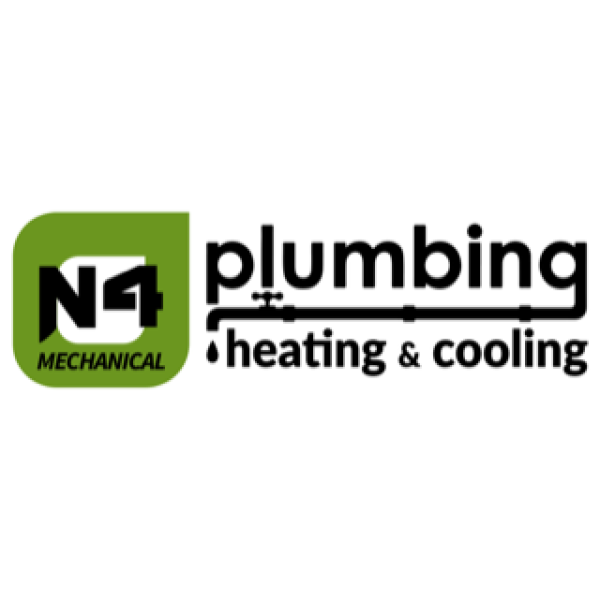Air Conditioning in Borehamwood
Search Air Conditioning in places nearby
Understanding Air Conditioning in Borehamwood
Air conditioning in Borehamwood has become an essential part of modern living, providing comfort and convenience to homes and businesses alike. As temperatures rise, the demand for efficient cooling systems increases, making it crucial to understand the various aspects of air conditioning in this area. This article delves into the different types of air conditioning systems, their benefits, installation processes, and maintenance tips, ensuring you make informed decisions for your cooling needs.
The Importance of Air Conditioning in Borehamwood
Borehamwood, a bustling town in Hertfordshire, experiences a range of temperatures throughout the year. With hot summers becoming more frequent, air conditioning systems have become vital for maintaining comfortable indoor environments. These systems not only provide relief from the heat but also improve air quality and enhance productivity in workplaces.
Climate Considerations
Borehamwood's climate is characterised by warm summers and mild winters. During the summer months, temperatures can soar, making air conditioning a necessity rather than a luxury. Understanding the local climate helps in selecting the right air conditioning system that can efficiently handle the temperature variations.
Health and Comfort Benefits
Air conditioning systems play a significant role in promoting health and comfort. They help regulate indoor temperatures, reduce humidity levels, and filter out pollutants and allergens, creating a healthier living environment. For individuals with respiratory issues, air conditioning can be particularly beneficial.
Types of Air Conditioning Systems
There are several types of air conditioning systems available, each with its unique features and benefits. Choosing the right system depends on various factors, including the size of the space, budget, and specific cooling needs.
Central Air Conditioning
Central air conditioning systems are ideal for cooling large spaces. They use a network of ducts to distribute cool air throughout a building, providing consistent and efficient cooling. These systems are often more expensive to install but offer superior comfort and energy efficiency.
Split Air Conditioning
Split air conditioning systems consist of an indoor and an outdoor unit. They are perfect for cooling individual rooms or small spaces. These systems are relatively easy to install and offer flexibility in terms of placement and operation.
Portable Air Conditioning
Portable air conditioning units are versatile and easy to move from one room to another. They are an excellent choice for temporary cooling needs or for spaces where permanent installation is not feasible. However, they may not be as efficient as other types of systems.
Window Air Conditioning
Window air conditioning units are installed in a window or through a wall opening. They are a cost-effective solution for cooling single rooms. While they are easy to install, they may not be suitable for all window types and can obstruct views.
Choosing the Right Air Conditioning System
Selecting the right air conditioning system involves considering several factors to ensure optimal performance and efficiency. Here are some key considerations to keep in mind:
Space and Size Requirements
The size of the space you need to cool is a critical factor in choosing an air conditioning system. Larger spaces may require central air conditioning, while smaller rooms can benefit from split or window units. It's essential to calculate the cooling capacity needed to avoid under or over-sizing the system.
Energy Efficiency
Energy efficiency is an important consideration for both environmental and economic reasons. Look for systems with high energy efficiency ratings, such as those with an Energy Star label. Efficient systems consume less energy, reducing electricity bills and environmental impact.
Budget Constraints
Your budget will also influence the type of air conditioning system you choose. While central systems may offer the best performance, they come with higher installation and maintenance costs. Consider your budget and weigh it against the long-term benefits of each system.
Installation Process for Air Conditioning Systems
Proper installation is crucial for the efficient operation of air conditioning systems. Whether you're installing a new system or replacing an old one, it's essential to follow the correct procedures to ensure optimal performance.
Professional Installation
Hiring a professional installer is recommended for most air conditioning systems. Professionals have the expertise and tools needed to install the system correctly, ensuring it operates efficiently and safely. They can also provide valuable advice on system placement and maintenance.
DIY Installation
For those with the necessary skills and experience, DIY installation can be a cost-effective option. However, it's important to follow the manufacturer's instructions carefully and ensure all safety precautions are taken. DIY installation is generally more feasible for portable and window units.
Permits and Regulations
Before installing an air conditioning system, it's important to check local regulations and obtain any necessary permits. Compliance with building codes and regulations ensures the installation is safe and legal.
Maintaining Your Air Conditioning System
Regular maintenance is essential for keeping your air conditioning system running smoothly and efficiently. Proper maintenance can extend the lifespan of the system and prevent costly repairs.
Routine Cleaning
Cleaning the air filters, coils, and fins of your air conditioning system is crucial for maintaining efficiency. Dirty components can reduce airflow and strain the system, leading to higher energy consumption and potential damage.
Annual Inspections
Scheduling annual inspections with a professional technician can help identify and address potential issues before they become major problems. Technicians can check for refrigerant leaks, inspect electrical components, and ensure the system is operating at peak efficiency.
DIY Maintenance Tips
There are several maintenance tasks you can perform yourself to keep your air conditioning system in good condition. These include regularly changing air filters, cleaning the outdoor unit, and checking for obstructions around the system.
Cost Considerations for Air Conditioning in Borehamwood
The cost of air conditioning in Borehamwood can vary significantly depending on the type of system, installation requirements, and ongoing maintenance. Understanding these costs can help you budget effectively and make informed decisions.
Initial Purchase and Installation Costs
The initial cost of purchasing and installing an air conditioning system can be substantial. Central systems tend to be the most expensive, while portable and window units are more affordable. It's important to consider both the upfront costs and the long-term benefits of each system.
Operating Costs
Operating costs include the electricity used to run the system and any maintenance expenses. Energy-efficient systems can significantly reduce operating costs, making them a wise investment in the long run.
Maintenance and Repair Costs
Regular maintenance is essential for preventing costly repairs. While maintenance involves some expense, it can save money by extending the lifespan of the system and avoiding major breakdowns.
Environmental Impact of Air Conditioning
Air conditioning systems can have a significant environmental impact, particularly in terms of energy consumption and refrigerant emissions. Understanding these impacts can help you make more sustainable choices.
Energy Consumption
Air conditioning systems are energy-intensive, contributing to increased electricity demand and greenhouse gas emissions. Choosing energy-efficient systems and using them wisely can help reduce their environmental footprint.
Refrigerant Emissions
Refrigerants used in air conditioning systems can contribute to global warming if they leak into the atmosphere. It's important to choose systems that use environmentally friendly refrigerants and ensure regular maintenance to prevent leaks.
Sustainable Practices
Adopting sustainable practices, such as using programmable thermostats, sealing air leaks, and maintaining proper insulation, can enhance the efficiency of air conditioning systems and reduce their environmental impact.
Future Trends in Air Conditioning
The air conditioning industry is constantly evolving, with new technologies and trends emerging to meet the growing demand for efficient and sustainable cooling solutions.
Smart Air Conditioning Systems
Smart air conditioning systems offer advanced features such as remote control, energy monitoring, and integration with home automation systems. These systems provide greater convenience and efficiency, allowing users to optimise their cooling needs.
Energy-Efficient Technologies
Innovations in energy-efficient technologies are driving the development of more sustainable air conditioning systems. These include variable-speed compressors, advanced heat exchangers, and improved insulation materials.
Renewable Energy Integration
Integrating air conditioning systems with renewable energy sources, such as solar panels, can further reduce their environmental impact. This trend is gaining traction as more consumers seek sustainable solutions for their cooling needs.
Frequently Asked Questions
- What is the best type of air conditioning system for a small flat in Borehamwood?
For small flats, split air conditioning systems or portable units are often the best choice due to their compact size and ease of installation. - How often should I service my air conditioning system?
It's recommended to have your air conditioning system serviced annually by a professional technician to ensure optimal performance and efficiency. - Can I install an air conditioning system myself?
While DIY installation is possible for some systems, such as portable and window units, professional installation is recommended for more complex systems to ensure safety and efficiency. - What are the environmental impacts of air conditioning?
Air conditioning systems can contribute to energy consumption and refrigerant emissions, which impact the environment. Choosing energy-efficient systems and maintaining them properly can help mitigate these effects. - How can I reduce the operating costs of my air conditioning system?
To reduce operating costs, consider using energy-efficient systems, setting the thermostat to a moderate temperature, and ensuring regular maintenance. - Are there any government incentives for installing energy-efficient air conditioning systems?
In some regions, government incentives or rebates may be available for installing energy-efficient air conditioning systems. It's worth checking with local authorities for any available programmes.
Air conditioning in Borehamwood is an essential aspect of modern living, providing comfort and convenience in both residential and commercial settings. By understanding the different types of systems, their benefits, and maintenance requirements, you can make informed decisions that enhance your quality of life while minimising environmental impact. As technology continues to evolve, the future of air conditioning promises even greater efficiency and sustainability, ensuring a comfortable and eco-friendly environment for all.







